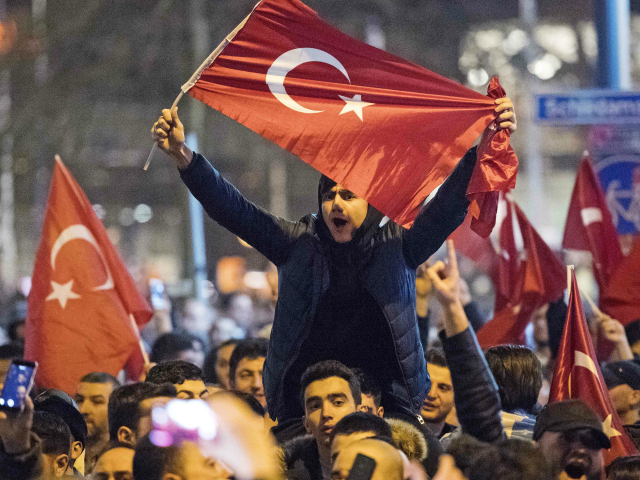Turkey’s state-run Anadolu news agency announced Tuesday the country will host the 2021 Interpol General Assembly, a victory for a nation Voice of America called the “most prolific abuser” of Interpol’s Red Notice system.
Interpol – the International Criminal Police Organization – offers a streamlined communication system for the law enforcement agencies of 194 countries. It does not have the power to arrest people or enforce law, but it can notify its members when a member country is seeking the arrest and extradition of an alleged criminal.
The agency uses a color-coded “notice” system to communicate among members. The most urgent of these is the Red Notice, which urges countries to “seek the location and arrest of wanted persons wanted for prosecution or to serve a sentence.” Other notices identify individuals who are not criminals but may have information related to a crime or are “imminent threats.”
At its most recent General Assembly last week, Interpol announced that Turkey will host the next iteration. Turkey’s national police directorate thanked the 108 nations who voted to give Ankara hosting rights and disparaged “Greek Cypriots,” whose island is partially occupied by Turkish forces, for discouraging support for the Islamist Turkish government.
Offering Islamist President Recep Tayyip Erdogan the honor of hosting Interpol’s annual conference is the latest in a series of mounting warning signs that Interpol, intended to weaken criminal forces around the world, has been hijacked by rogue regimes using it to impose their authoritarian will on the world. Turkey’s prominence in the organization is particularly alarming given that Interpol agreed to resolutions at its General Assembly last week encouraging private entities to cooperate with its demands for information, ostensibly to help nations fight crime more efficiently.
According to a report published this month by Voice of America, rogue states have increasingly abused the Red Notice system to force other countries to arrest and extradite political dissidents – or even some merely suspected of dissidence but not outspoken against their governments. Any Interpol member nation can file for a Red Notice against any individual and, while Interpol has the right to reject the request, it often takes the application at face value.
Countries now use an online system to file for Red Notices, which requires minimal effort or due diligence on the part of the requesting state. Interpol reportedly issued over 13,000 Red Notices against individuals last year.
Voice of America listed Turkey as the “most prolific abuser” of the system, followed by Russia, China, Kazakhstan, Tajikistan, and Uzbekistan.
Turkey’s abuse of the system peaked in 2016, following the failed attempt to overthrow Erdogan on July 15. The individuals responsible for the coup identified themselves as secularist military leaders, but Erdogan insisted they were members of a cult led by Fethullah Gülen, an Islamic cleric based in Pennsylvania. Formerly an Erdogan ally, Gülen founded an Islamic movement known as “Hizmet,” or “service,” with an emphasis on the construction of schools and charity work. Erdogan’s government calls Hizmet the “Fethullahist Terrorist Organization” (FETO) and has detained over 100,000 people alleged to have ties to the regime.
Many of those arrested for ties to Gülen faced no legitimate evidence against them. Many were soldiers, teachers, professors, doctors, and other professionals, and many remain in prison for their “crimes” at press time without due process.
American Pastor Andrew Brunson, who preached in Turkey for 23 years, was arrested in 2016 for, among a host of other unsubstantiated accusations, being a Gulenist. He had never knowingly met a Gulenist before being arrested, he wrote in his recently released autobiography, which is the only known English-language first-hand account of the conditions “Gulenists” are currently imprisoned in.
The Turkish judicial system is extremely “political” and unreliable, Brunson told Breitbart News in an interview this week. “They accused me of different things at different times. They were trying to find something that would fit, so they would change their minds a lot and then they would drop the previous accusations,” he noted.
Of the “Gulenists” imprisoned with him, Brunson said, “not a single one of them was involved with anything to do with the coup … most of them were fathers whose children are growing up without having their father at home, and that’s just a terrible injustice.”
Turkey reportedly flooded Interpol with 60,000 Red Notice requests against “Gulenists” in the aftermath of the coup. News reports indicated that Interpol was forced to lock the Turkish government out of its system, a claim Interpol later denied. Among those persecuted through Interpol Red Notices is NBA star Enes Kanter, who was nearly arrested on two occasions traveling for NBA games and has since refused to leave the United States for fear of extradition into the prison cells Brunson endured.
Interpol has in the past rejected Red Notice requests from authoritarian regimes. The most prominent recent case was that of Dolkun Isa, the head of the World Uyghur Congress – a human rights advocate China has branded as a “terrorist” for defying the communist regime. Interpol removed a Red Notice against Isa, requested by China, in February 2018. Eight months later, China abducted and disappeared the president of Interpol, Meng Hongwei, in a trip to visit his family in the country. Chinese authorities accused Meng of bribery in a murky legal proceeding and have not offered proof of life since June.
Meng’s wife Grace has filed for political asylum in France, where Interpol headquarters are located, and sued Interpol for failing to protect him from the regime.
Follow Frances Martel on Facebook and Twitter.

COMMENTS
Please let us know if you're having issues with commenting.